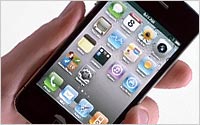Poor Mobile App Performance Could Stifle Retail Sales
- by Laurie Sullivan @lauriesullivan, March 4, 2013

Mobile will generate one-quarter of retail sales by 2014, and the apps from which consumers make purchases will generate multi-terabytes of real-time data. But getting apps to work well remains a major challenge.
Android may take the majority of market share, but apps built on the Google OS crash more often compared with Apple -- 33% vs. 23%, respectively, according to the Xtreme Labs Retail Apps Report released Monday, which provides insight into how the top 100 U.S. retailers fare in the mobile space. The list comes from the 2012 annual STORES Top 100 Retailers report. Retailers' inclusion is based on 2011 revenue.
The report, which analyzes at the top two platforms -- Android and iOS -- also calculates publicly available ratings in both the Apple App Store and Google Play and lists its results, as well as top complaints based on user comments. Ironically, only 56% of retailers have apps supporting both operating systems.
The biggest reason for app crashes points to "shoddy" code, unreliable Internet connections or poor memory management at sites like Ace Hardware, Best Buy, Nordstrom and even Apple Stores.
While some apps crash, others are poorly designed. Apple OS devices, 22%, and Android, 21%, lack in physical appearance. The report notes that some of the retailers with poorly designed sites, like Barnes & Noble, Bed Bath & Beyond, or Kohl's, could easily redesign then.
Mobile users will download 14 billion tablet apps this year to help search and find products, services and information, according to ABI Research. The updated market forecast released Monday suggests iPad leads with 75% share; Android, 17%, excluding Kindle Fire. Downloads to Amazon tablets will account for 4%, Windows tablets will take 2%. In comparison, smartphone app downloads will reach 56 billion this year overall. Android will account for 58%; Apple iOS, 33%; Microsoft Windows, 4%, and BlackBerry, 3%.
Even with all this building and downloading, 26% of consumers said Apple apps lack features; 16% said the apps are not compatible across all Apple devices; and 13% believe the are not compatible with passbook. When it comes to Android, 26% said the app doesn't work as intended; 25% complain about lacking features, and 17% said they are not user friendly.
The only two retailers receiving favorable ratings across both platforms were the drugstores CVS and Walgreens, according to the report. The utility apps fulfill everyday customer needs.



What is the hard evidence to support the claim, "Mobile will generate one-quarter of retail sales by 2014?"
And what percentage is it generating now? How do we know what that number is?
OY Vey ! There won't be enough places left to spend money !